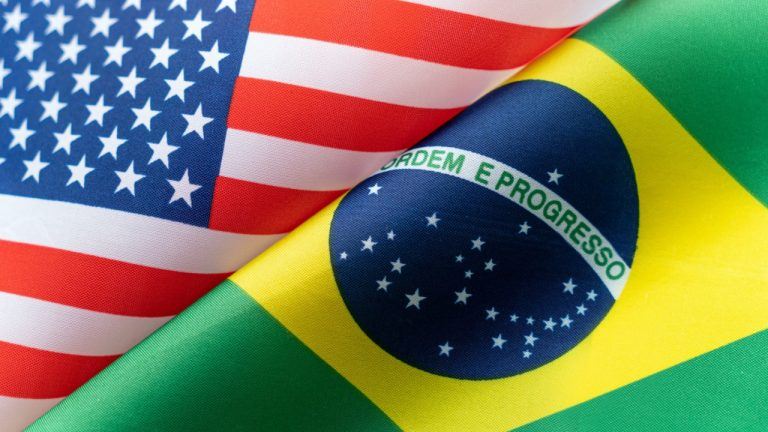
The trade tension between Brazil and the United States has reached a critical point as both countries are contemplating retaliatory measures in response to recent actions taken by President Trump. The conflict began when President Trump imposed a hefty 50% tariff on Brazilian imports, sparking outrage in Brazil and setting off a chain of diplomatic exchanges that could potentially lead to economic sanctions.
The trade feud between the two nations has been fueled by a variety of factors, including political dynamics within Brazil. The looming presence of former President Jair Bolsonaro, who is known for his hardline stance on trade and foreign policy, adds an additional layer of complexity to the situation. Bolsonaro's influence over the Brazilian government and his close ties to the current administration have further exacerbated tensions between the two countries.
Brazil, a major exporter of agricultural products, has been hit hard by the tariffs imposed by the U.S., leading to significant economic repercussions for the country. In response, Brazilian officials are considering retaliatory measures that could target key sectors of the U.S. economy. These retaliatory actions could potentially escalate the conflict and result in a full-blown trade war between the two nations.
The U.S. has also signaled its willingness to take a tough stance in the ongoing dispute. President Trump's administration has emphasized the need to protect American industries and jobs, which has led to the implementation of tariffs as a means of achieving this goal. However, the aggressive trade policies pursued by the U.S. risk alienating key allies and trading partners, further complicating the global economic landscape.
As the trade conflict between Brazil and the U.S. continues to escalate, the possibility of economic sanctions being imposed by both sides looms large. Such sanctions could have far-reaching consequences for businesses and consumers in both countries, potentially leading to higher prices, reduced trade volumes, and increased economic uncertainty.
The outcome of this trade dispute will have significant implications for the global economy and could shape the future of international trade relations. As both Brazil and the U.S. weigh their options and consider their next steps, the need for diplomatic solutions and constructive dialogue becomes increasingly urgent. Finding a resolution to the conflict will be crucial in order to avoid further escalation and minimize the negative impact on both economies.
Source: https://news.bitcoin.com/brazil-us-trade-conflict-may-escalate-spurring-mutual-retaliation/

Leave a Reply